25 nov 2019
How to explore Copenhagen through eco-friendly initiatives
As Copenhagen takes steps to be recognised as a carbon-neutral capital, the Danish city its looking to its visitors to be part of that journey and combine a stay with a range of easy eco-friendly choices.
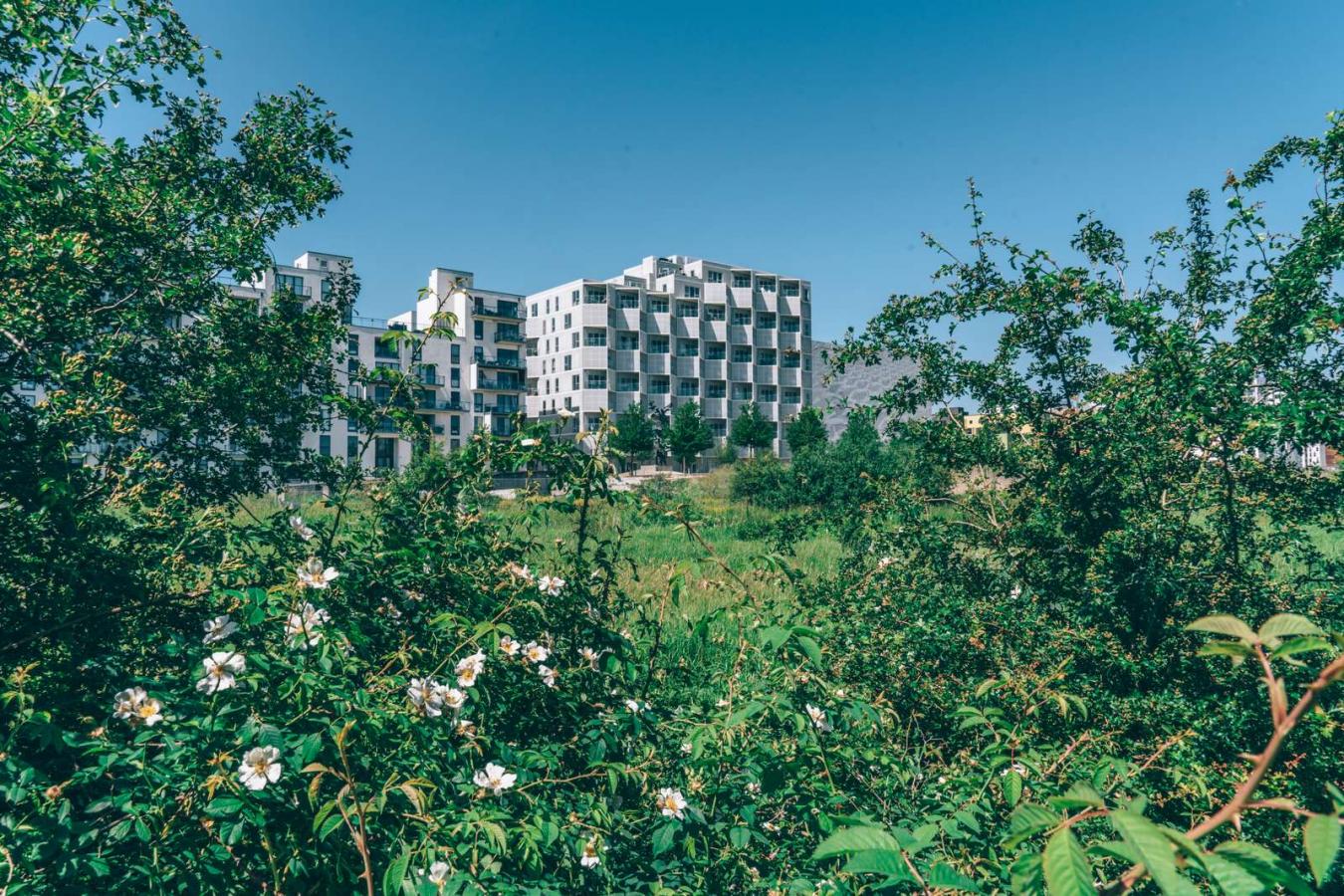
Using the new Metro line, hopping on a bike and staying in its eco-friendly hotels to exploring its socially sustainable neighbourhoods, dining on local and ethically sourced produce at the city’s restaurants and helping to keep the harbours and canals free from plastic. These are all among the ways in which visitors can contribute to the green development in Copenhagen.
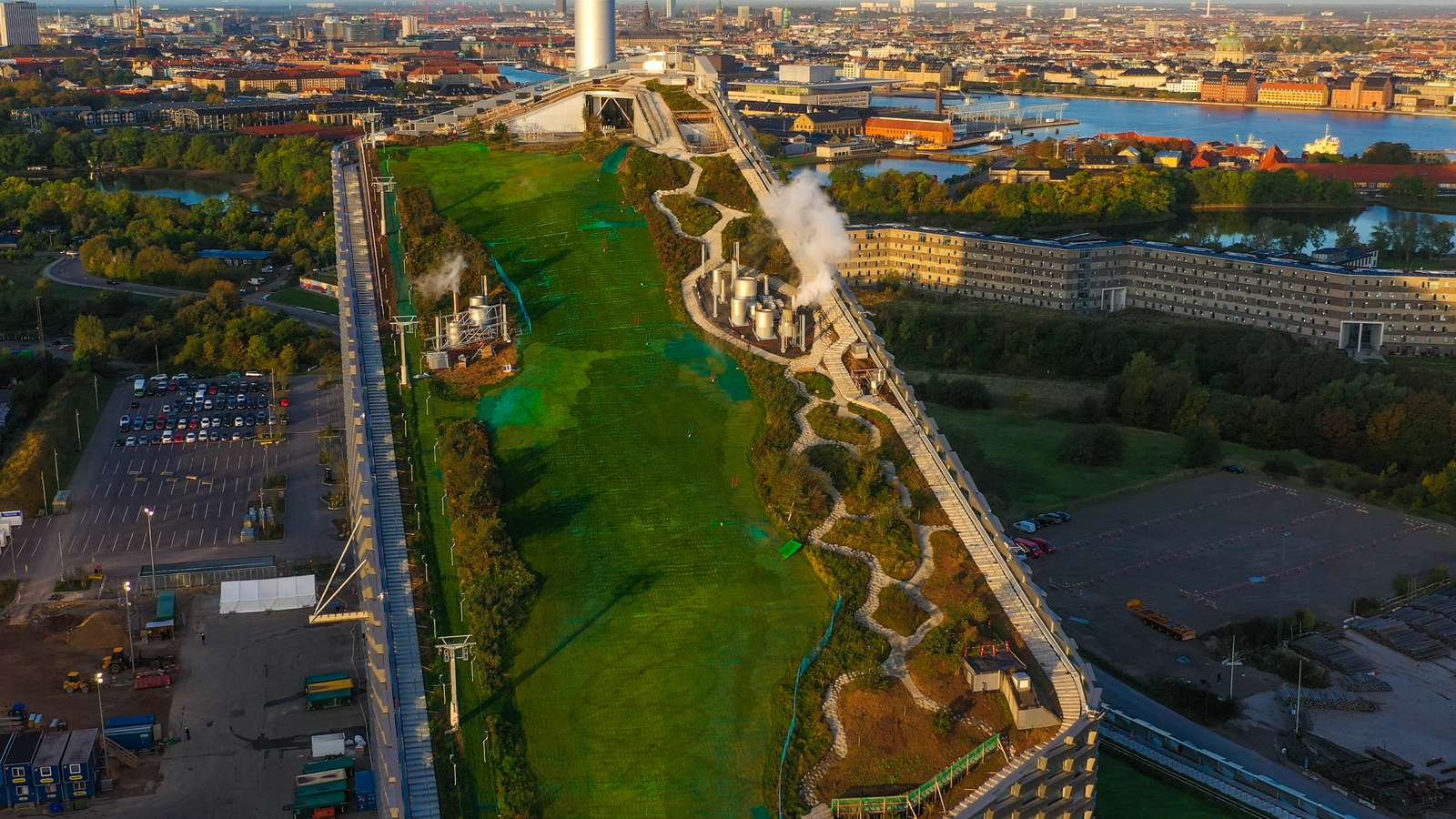
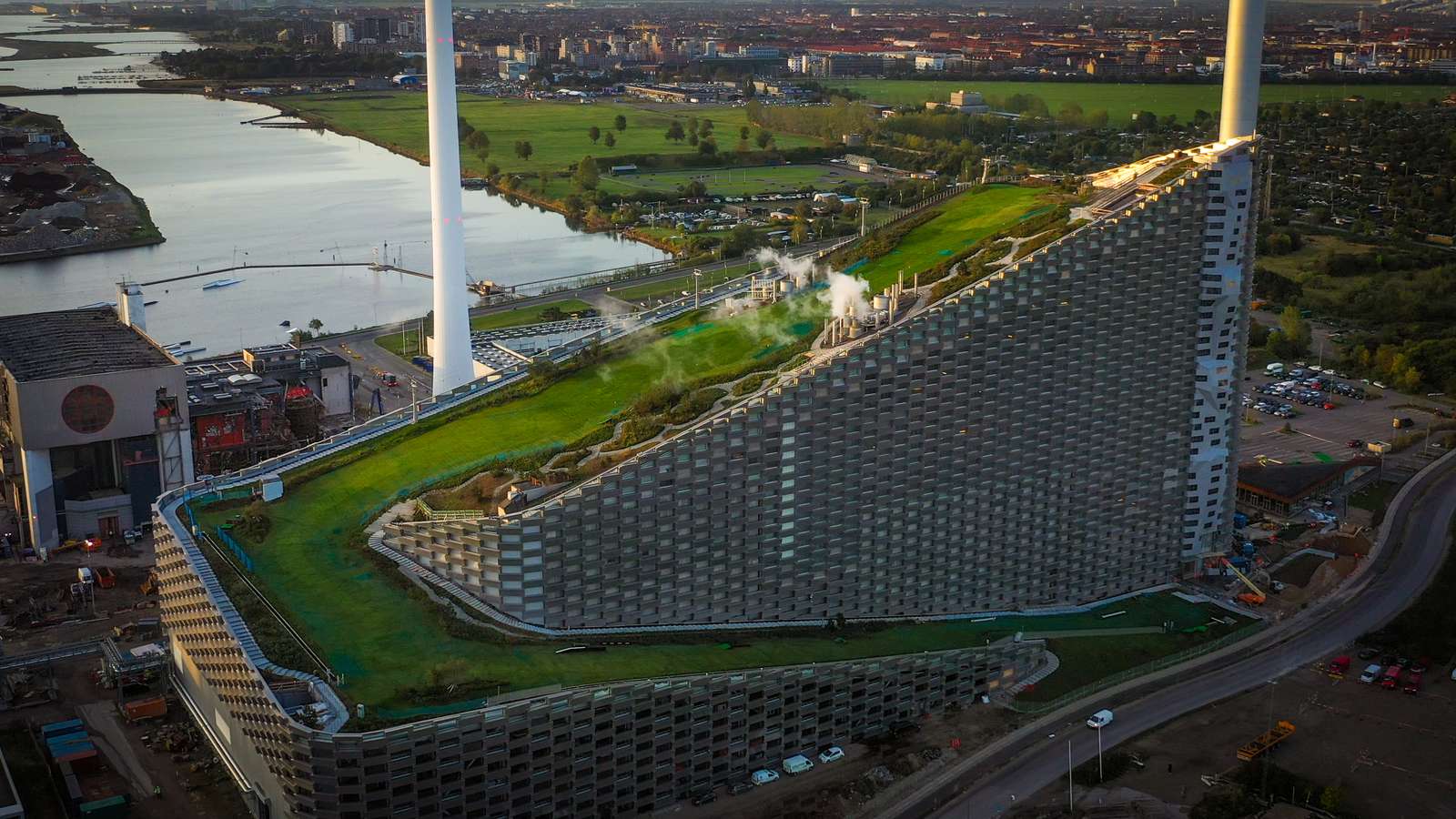
The big new opening this autumn (4 October 2019) saw Copenhill, the futuristic artificial ski slope receive its first visitors. Designed by Danish architect Bjarke Ingels and located on the top of Copenhagen’s new Amager Bakke waste-to-energy plant, this is the perfect example of how sustainable energy solutions can be combined with recreational spaces in the ciy. There are green walking and running trails and for those with a real head for heights, one side of the 85-metre high building is the tallest climbing wall in the world. At 10m wide, it has grips and different obstacles on the way up with different out hangs and routes to be found on the way.
For an innovative way to see the city and help maintain its celebrated clean harbour, Green Kayak is an environmental initiative with the aim to reduce the amount of waste in aquatic environments. Visitors can ‘rent’ a kayak free of charge to explore Copenhagen’s waterways for two hours and instead ‘pay’ by bringing back a bucket of waste they have gathered from the harbour and canals. The aim is to keep the local waters clean, as well as minimising the general level of micro plastic in the ocean by ensuring that plastic is not left to dissolve in the water.
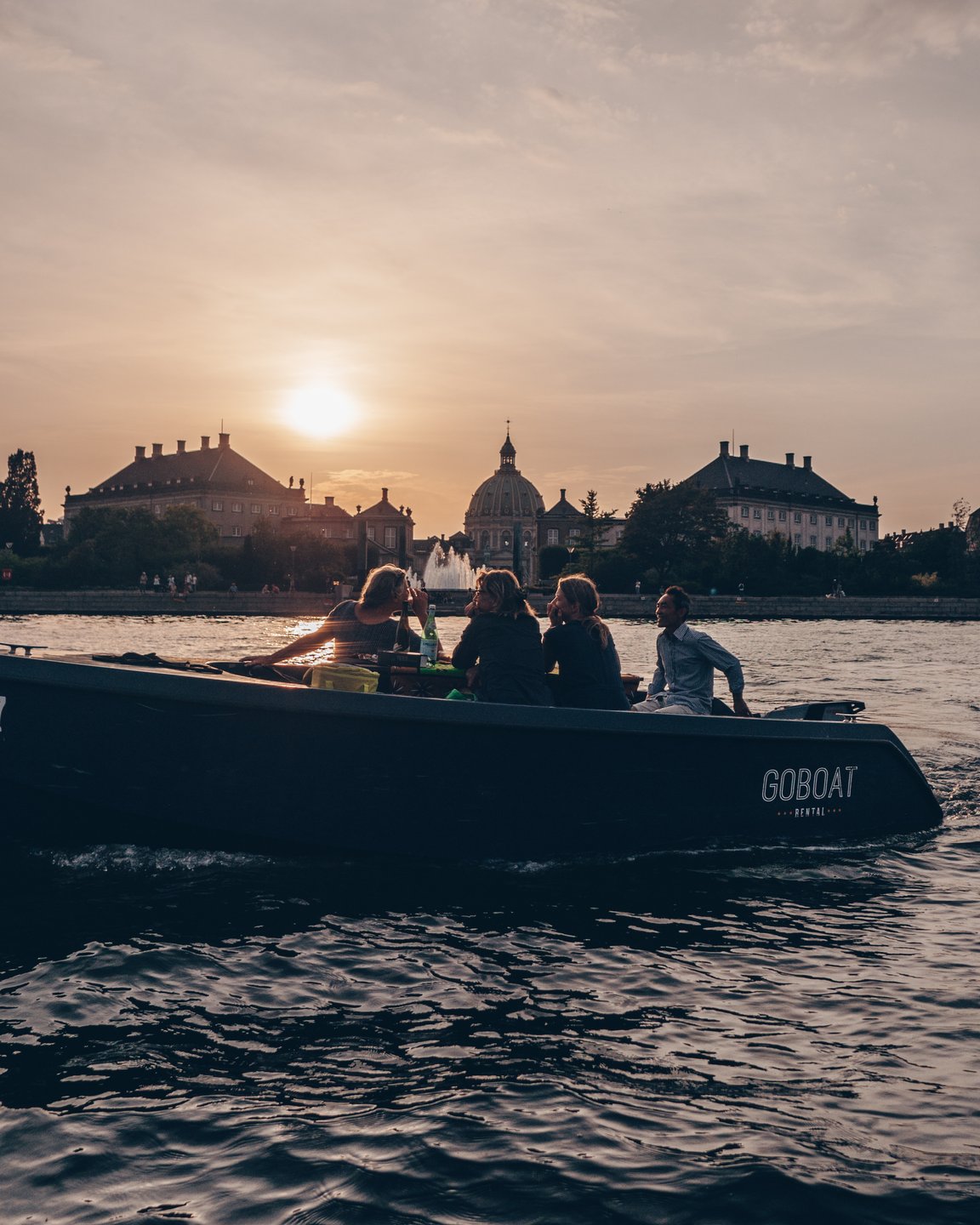
Alternatively, visitors explore the harbour in a noiseless and solar powered boat from GoBoat. Built on a sustainable foundation with a focus on keeping the harbour clean by using environmentally friendly motors GoBoats can be rented to explore the harbour and canals. They also sell organic wine and drinks to enjoy on board and use sustainable trees for the construction of their pavilions and tables.
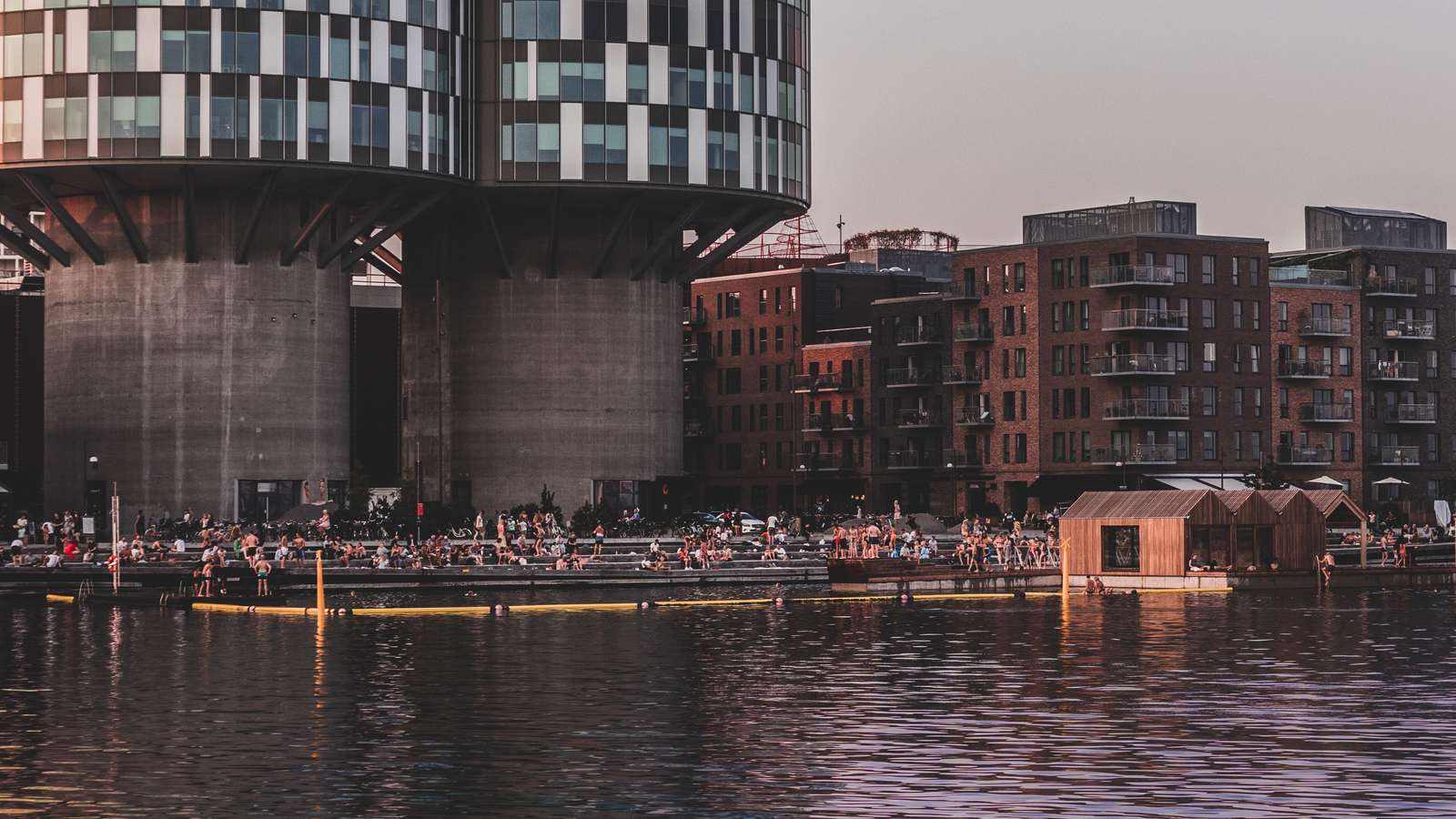
Explore innovative neighbourhoods
Nordhavn is one of the newest city areas in Copenhagen and has been built with a sustainable vision in mind and aims to seek out both environmentally friendly and workable solutions in order to create a more socially sustainable Copenhagen. The area is also home to the EnergyLab Nordhavn, which is a large research project working with energy solutions for the future. The company has used the surrounding area to test a range of ideas and has helped to make Nordhavn the only city development area that has the highest sustainability certification (Platinum) in the certification system DGNB.
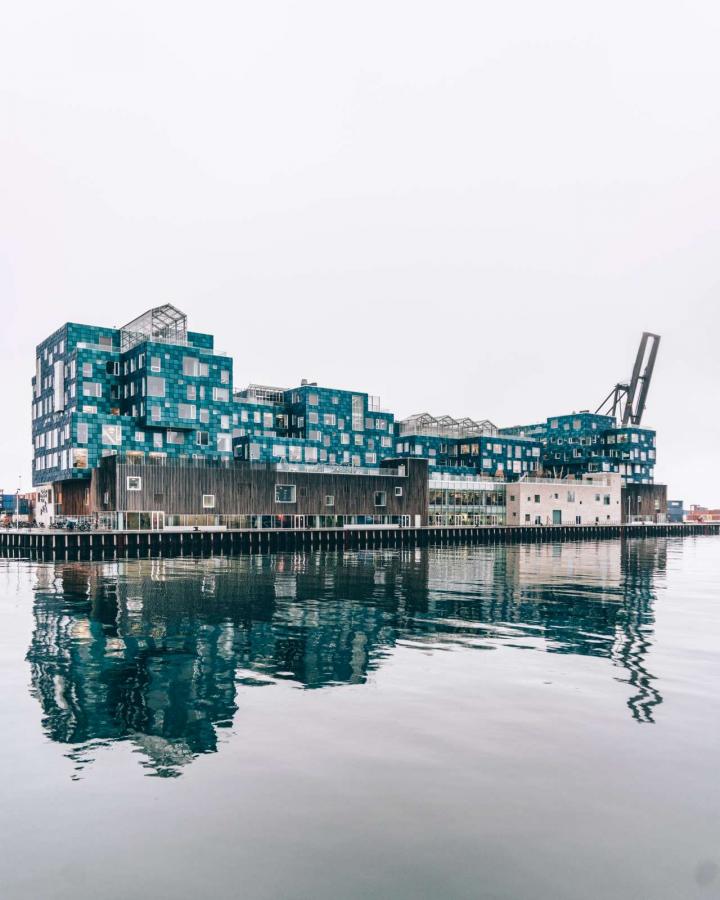
Across the harbour from Nordhavn in the newly established Refshaleøen area of the city sustainability takes the form of Reffen, a new organic street food market and creative hub for start-up businesses and innovation. Since opening in 2018, more than 50 start-up businesses in the form of food stalls, bars and creative workshops have come to this area by the Copenhagen harbour with many the market stalls constructed of recycled materials or placed in recycled shipping containers. All stalls agree to ‘reduce and reuse’ to minimise food waste and use organic, free-range and local produced ingredients wherever possible.
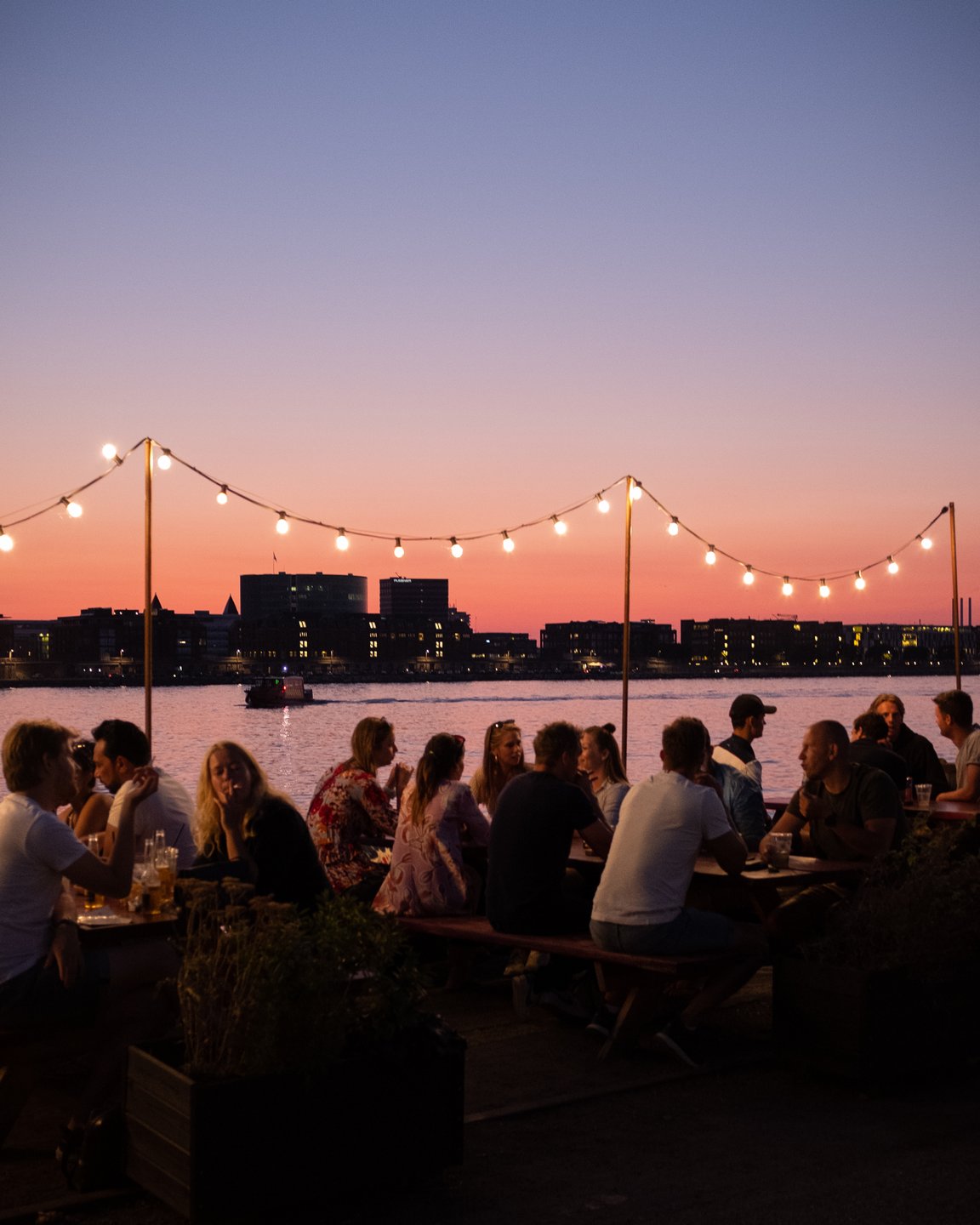
Dine on local delights
Across the city, locally sourced and organic food is seeing a real surge in demand. From private homes, where organic food accounts for nearly a quarter of all food sales, to the top restaurants, where it is the basis of New Nordic cuisine.
For example, the reopened restaurant noma has its own urban farm on Refshaleøen and at nearby Amass former noma Head Chef, Matthew Orlando, works with organic produce from local farms alongside his own 800-squaremetre garden situated directly in front of the dining room.
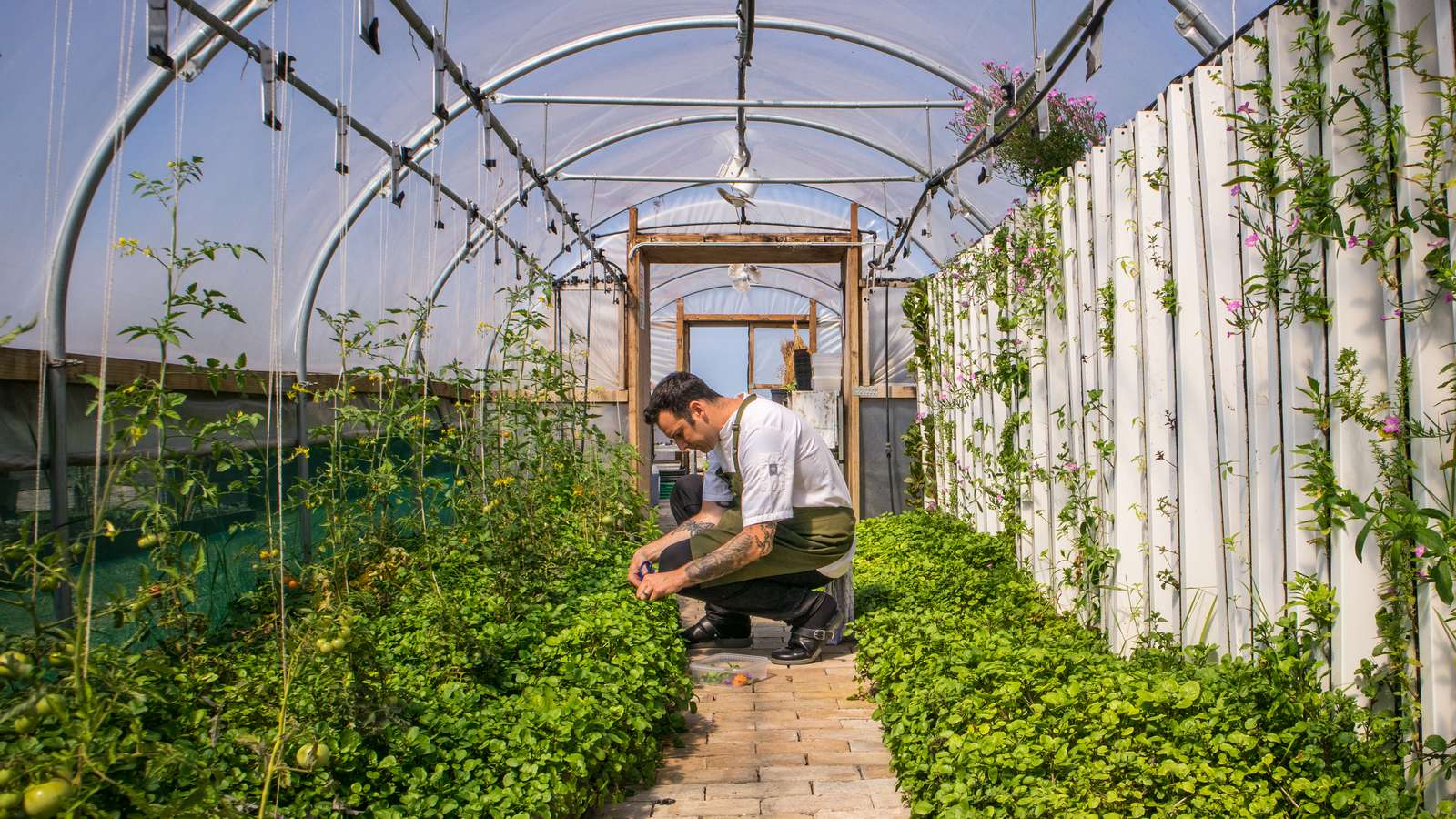
At Relæ, which has twice been named the world’s most sustainable restaurant, their philosophy is built on the idea that innovative gastronomy and low prices can work hand in hand. They have a ‘farm of ideas’ located at a community an hour from Copenhagen, dedicated to establishing sustainable and organic farming practices. As part of the community, Relæ takes an ethical and uncompromising approach to every element of the food production process with carefully prepared daily routines using smart solutions. What they do not produce themselves comes directly from organic, local and small-scale farms that are all certified organic.
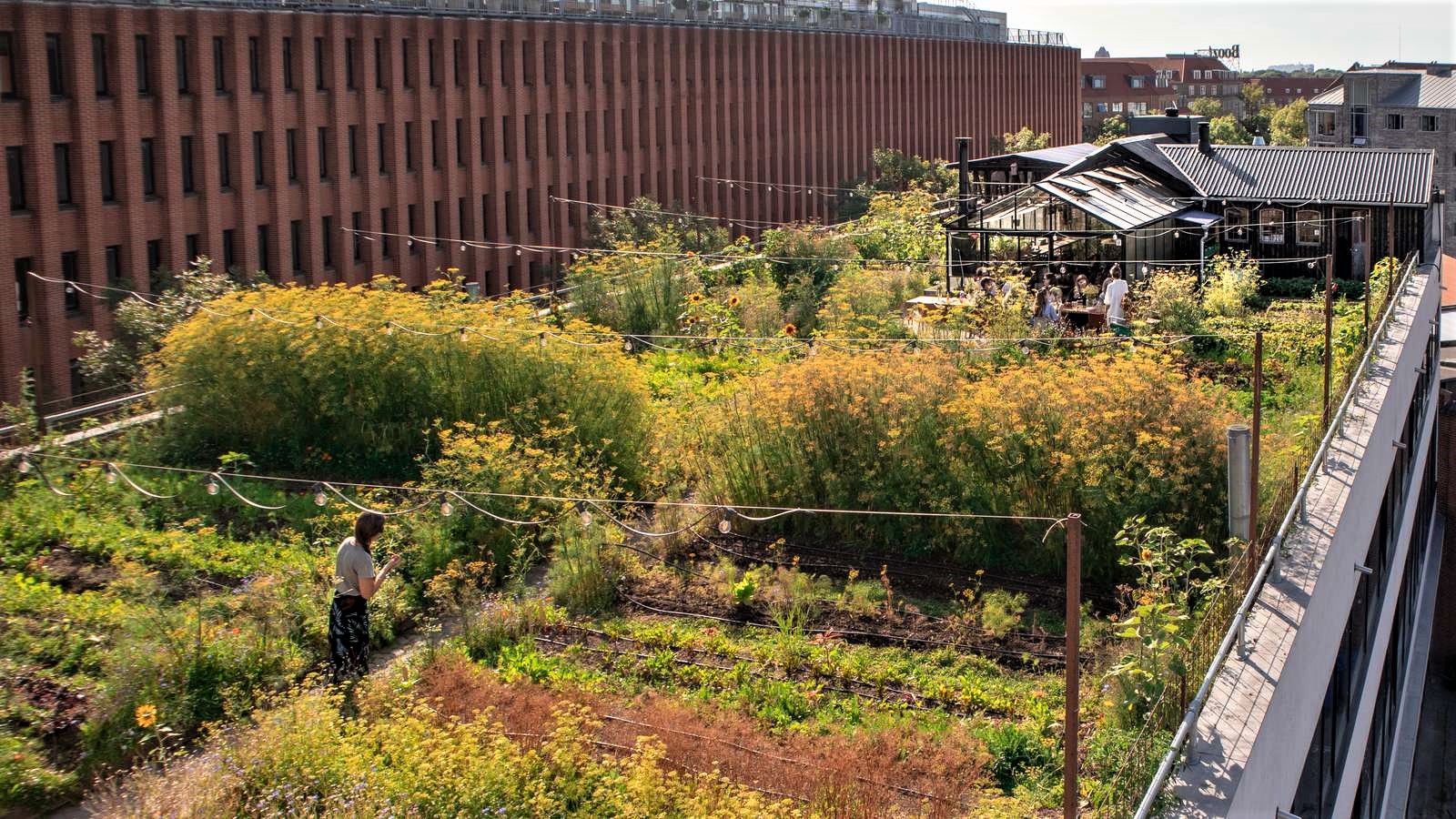
Meanwhile, on the top floor of a former car auction house in Østerbro, Gro Spiseri is a restaurant run alongside Denmark’s first rooftop farm. In the warm and cosy greenhouse, which is heated by a multifunctional oven in the kitchen, up to 24 diners sit at one long table among the herbs, strawberry plants and lettuces. An evening at Gro includes beautifully flower-decorated dishes, lots of stories about the farm and, on a good day, an amazing sunset over the city. Visitors can even get their hands dirty, and experience more of the farm at a series of events and workshops, where they can choose to help at the farm, learn about plants or join a cooking class.
Stay in a eco-friendly hotel
Hotels across the city are looking to grow their focus on sustainability with more than 70% holding an official eco-certification.
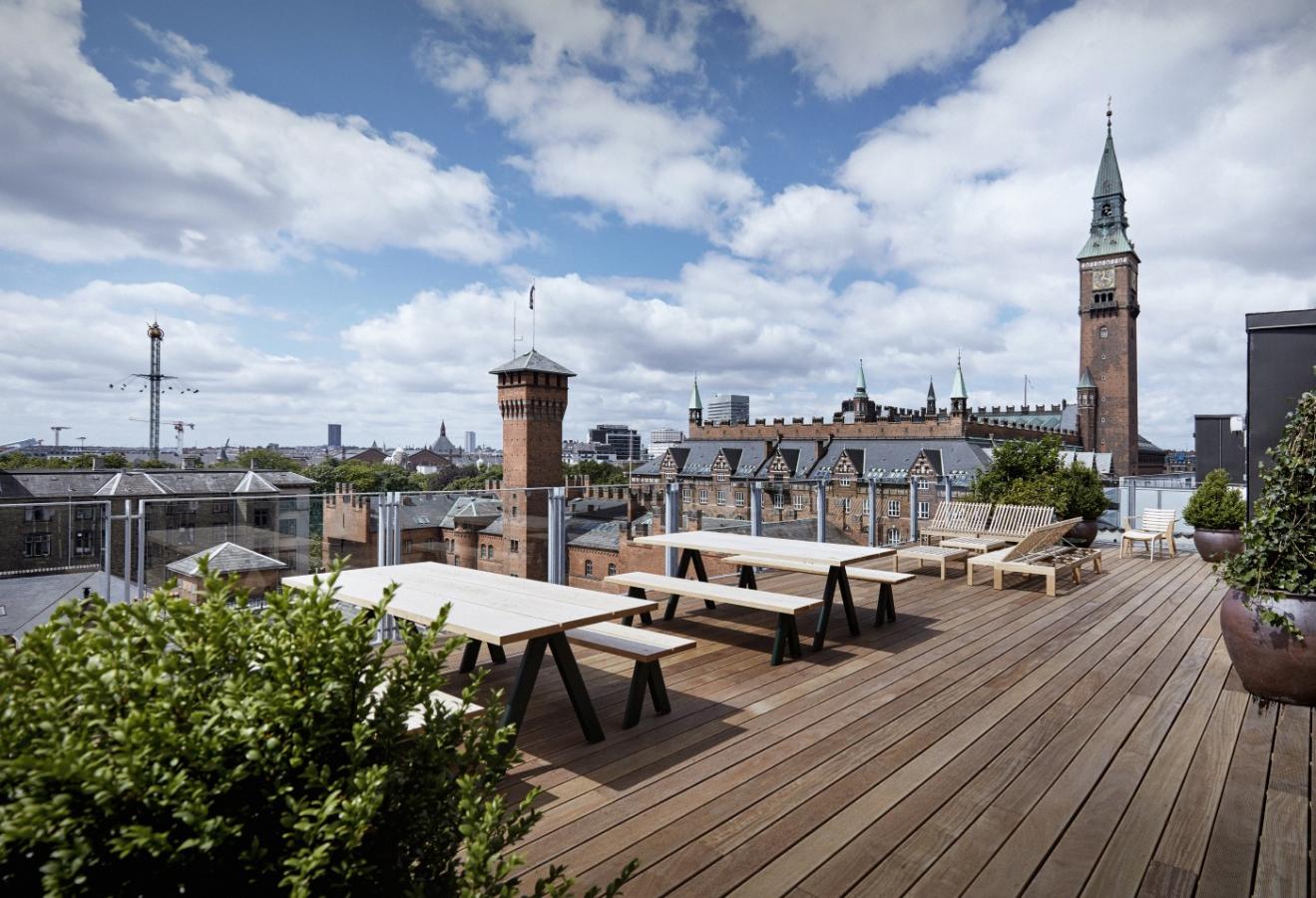
For example at the city’s six Brøchner Hotels, almost 100% of all the food served at breakfast is organic and their chocolate comes from Original Beans which helps to plant a tree every time a chocolate bar is sold. They are also part of the international eco-label Green Key, which means they take steps to saving energy everywhere they can and the hotel group collaborates with the Danish company Danfoss to go that extra mile to control the automatic temperature in the rooms in order to emit as little energy as possible.
At the climate friendly Arthur Hotels group, their two Copenhagen properties have made them the first carbon neutral hotel group. This has been achieved by consulting with employees to make small adjustments such as more energy-friendly lighting and heating, choosing greener options for guest’s amenities and groceries, and reducing their laundry consumption by 22%. Arthur Hotels has also brought electric cars for guests to rent and provide charging stations for guests arriving by electric car. They support suppliers with green initiatives, favouring organic products transported by electric cars and have slashed transportation by only having milk delivered to the hotels every other day instead of every day.
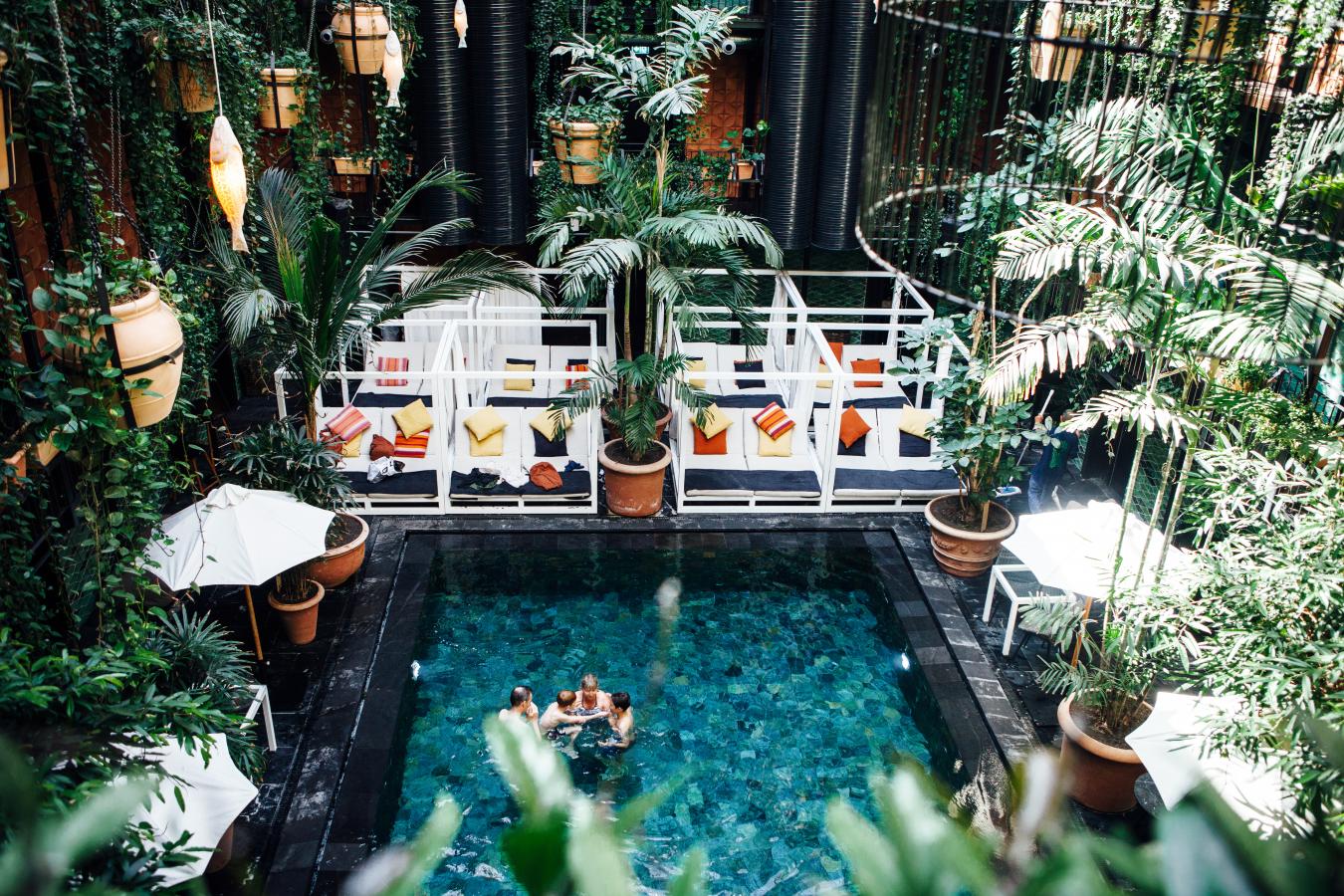
All the Guldsmeden Hotels (there are five in Copenhagen) are Green Globe Certified and are committed to improve their sustainability standards even more through an annual audit that demands a 5% improvement each year in a given area. The group also holds the Golden Ø label which is regulated by the Danish Ministry of Food & Agriculture and recognises that 90-100% of all the food they serve is organic.
At the Bellagroup, one of Denmark’s leading hotel, conference and hospitality companies, with just under 1,600 hotel rooms and more than 160 meeting and conference spaces across the city, their focus is on reducing food waste through a collaboration with Too Good To Go and to purchasing produce from sustainable suppliers.
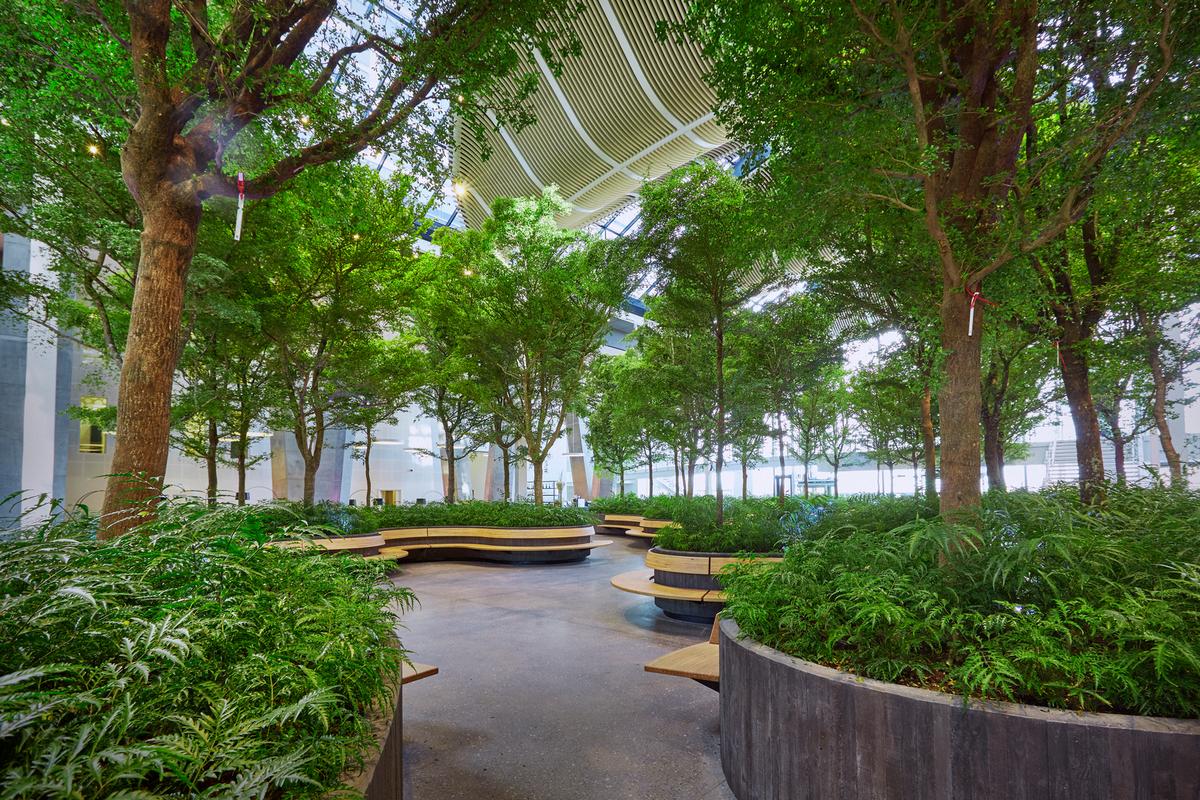
Explore the city by bike and public transport
The Danes are a nation of cyclists and on average every Copenhagener cycle about 3.5 km per day with 62% using their bike to get to work and school. Visitors can join in using the network of 24 so-called ‘Green Bike Routes’ which have been planned across the city. So far over 58 km of the 115km route has been completed and Lille Langebro, the newly opened harbour bridge for bikes and pedestrians, makes it even easier to get around the city by bike.
For those who prefer the Metro, the new City Circle Line Metro opened on 29 September 2019 and enables more people to take public transport. Linking the Nørrebro and Vesterbro areas with the city centre, the 15.5 km underground track loops under the city’s ‘bridge quarters’ and Frederiksberg with 17 underground stations and makes all the restaurants, bars and shops more easily accessible for visitors.
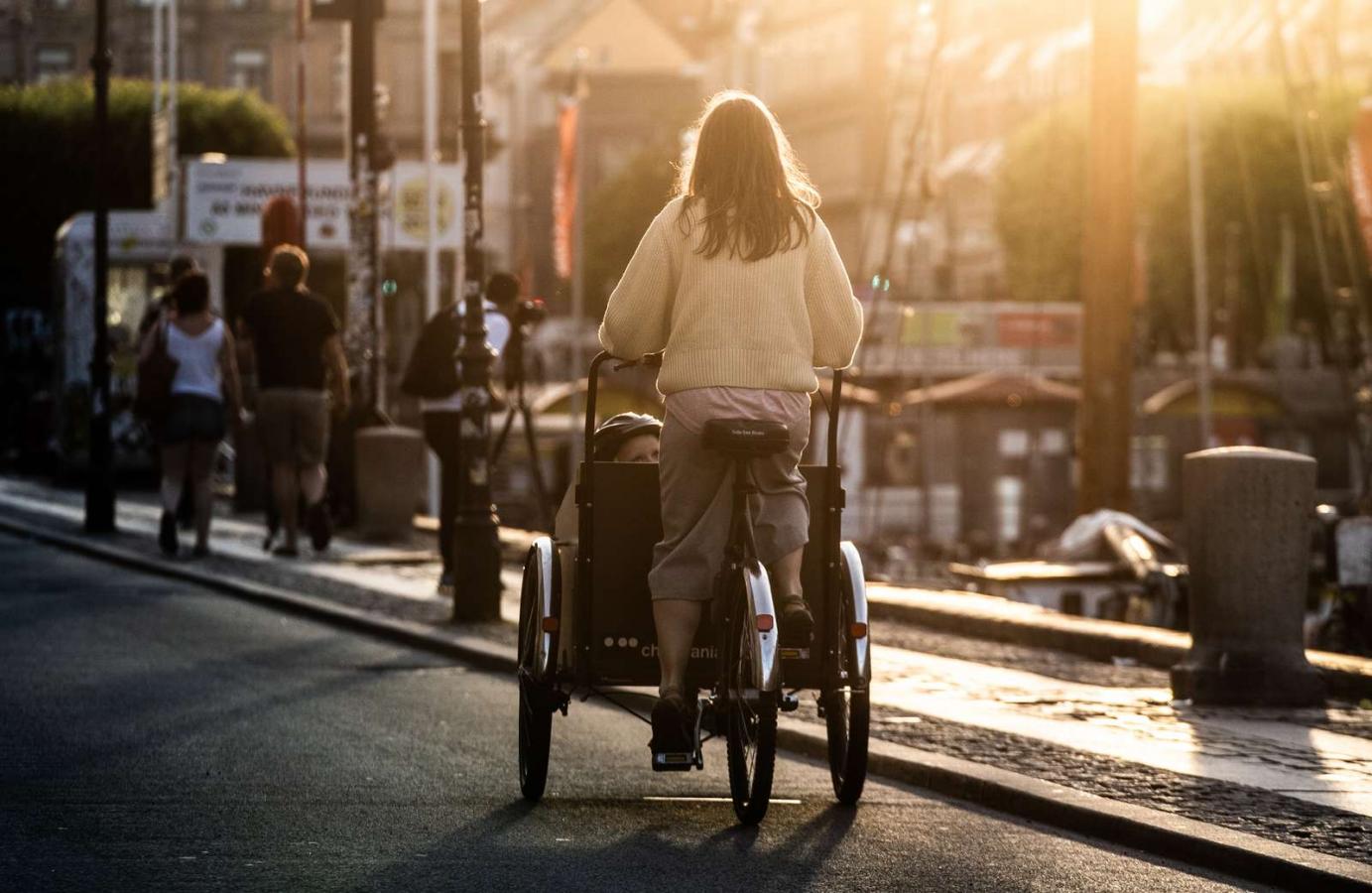
In a further bid to reach the city’s carbon neutral status by 2025, all diesel-powered buses will be phased out in favour of electric buses. Following tests over the last two years, the plan is to implement electric buses across all the city. The first routes will be fully serviced by electric busses before the end of the year.
Another innovative addition to the Copenhagen public transport network is the Greater Copenhagen Light Rail set to open in 2025. Running every five minutes, the eco-friendly rail will connect 29 stations across a 28 kilometre route north, west and south of Copenhagen.
Getting there:
You can travel to Copenhagen via bus and train. For example, travel with the Eurostar to Brussels (prices from £44) and from here with Flixbus to Copenhagen (prices from £32).
Copenhagen is also within easy to reach using direct flights from London, Bristol, Manchester, Liverpool and Edinburgh.
SAS flies from Stansted and Heathrow to Copenhagen with prices starting from £38 one way. CO2 offsetting is included in all Youth tickets.
BA has flights from Heathrow to Copenhagen with prices starting from £38 one way. Via BA’s carbon reduction tool, you can calculate your CO2 emission and offset by contributing to an emission reduction project.
Ryanair operates from Stansted to Copenhagen and Liverpool to Copenhagen starting at £9.99 one way.
EasyJet connects Gatwick and Edinburgh to Copenhagen with prices from £25 one way.
Norwegian offers flights from Gatwick and Edinburgh to Copenhagen starting at £30.